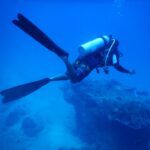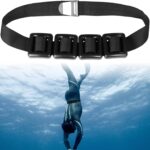Is Scuba Diving Dangerous – Know Your Limit
Is scuba diving dangerous? Well, only if you forget to breathe, swim into a shark’s mouth, and high-five a jellyfish — all at the same time. But realistically? It’s not nearly as scary as your aunt’s cooking or driving on a rainy Monday in LA traffic.
In all seriousness, if you’ve ever typed “is scuba diving dangerous” with sweaty palms and a quickened heartbeat, you’re not alone. Before strapping a tank to your back and disappearing into the blue abyss, it’s completely natural to question the risk.
Let’s get right to it.
Is Scuba Diving Dangerous?
Yes, scuba diving is dangerous, just like any adventure sport carries risk. But when done properly, with proper training, preparation, and awareness, scuba diving is statistically safe and very manageable.
Let’s break it down with hard facts:
- According to Divers Alert Network (DAN), the fatality rate among recreational divers is approximately 1 in 200,000 dives. That’s significantly safer than driving a car or skiing.
- Most accidents are due to diver error — like skipping safety checks, ascending too quickly, diving beyond one’s limits, or diving with pre-existing medical conditions.
- Equipment failure? Extremely rare. Modern scuba gear is engineered with redundancies (like backup air regulators), so you’re not left holding your breath.
Scuba diving is only as dangerous as you make it. If you treat it casually, skip training, or ignore safety rules, you’re increasing the odds of trouble. But if you respect the rules and dive responsibly, the risk is very low.
What Are the Real Scuba Diving Dangers?
There’s a lot of misinformation floating around, but let’s look at the actual scuba diving hazards:
1. Decompression Sickness (“The Bends”)
Also called scuba divers disease, it occurs when nitrogen bubbles form in your bloodstream due to a too-rapid ascent.
- How to avoid it: Ascend slowly, make safety stops, and never exceed depth/time limits. Dive computers help monitor all these.
2. Nitrogen Narcosis
At depths below 30 meters (~100 feet), the increased nitrogen pressure can cause a drunk-like state — disorientation, poor judgment.
- How to avoid it: Stay within recreational depth limits. If you’re not trained for deep diving, don’t go there.
3. Barotrauma
This happens when pressure isn’t equalized between your internal air spaces and the surrounding water — often affecting ears and sinuses.
- How to avoid it: Equalize early and often. If you feel pain in your ears, stop descending. Don’t dive with a cold or congestion.
4. Marine Life Encounters
While media hypes shark attacks, most incidents are minor — like jellyfish stings or spiky sea urchin pokes.
- How to avoid it: Follow the golden rule — look but don’t touch. Marine life doesn’t seek confrontation.
5. Panic and Claustrophobia
Sometimes the real danger is internal — anxiety, fear of being underwater, or reacting poorly in a stressful moment.
- How to avoid it: Practice in confined water. Train with instructors. Know your limits. Mindset is a major player.
These are the most known scuba diving hazards, and they’re all preventable with training and discipline.
RELATED: Is Scuba Diving Hard
How Many Scuba Divers Die a Year Worldwide?
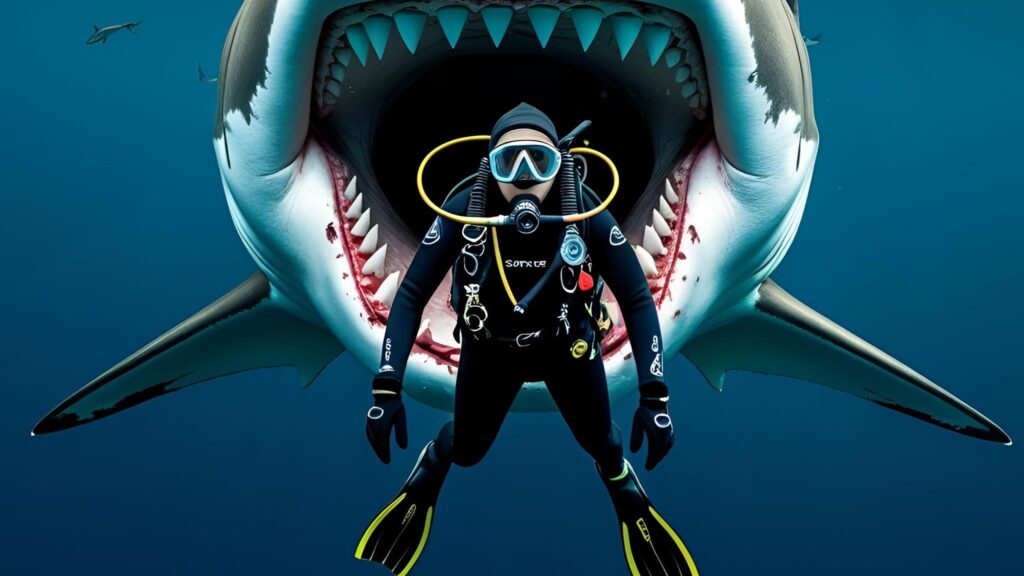
How many scuba divers die a year worldwide? According to global data compiled by Divers Alert Network (DAN) and international safety registries, the average is about 100 to 150 scuba-related fatalities per year.
Now, that sounds scary until you realize:
- There are millions of dives happening annually, across all skill levels and locations.
- That puts the fatality rate at around 1 death per 200,000 dives — much lower than other high-adrenaline sports.
- Most deaths are preventable, caused by factors like:
- Pre-existing medical conditions (especially cardiac issues)
- Ignoring no-decompression limits
- Diving alone or untrained
- Panic underwater
The sad truth is that many scuba diving deaths are not caused by the ocean — but by human error.
That’s why dive instructors stress:
- Get regular checkups if you’re middle-aged or have health concerns.
- Take refresher courses if it’s been a while since your last dive.
- Never skip safety checks or dive plans.
The best way to avoid being a statistic? Take scuba diving seriously, not casually. Respect the limits, know your training, and always dive with a plan.
Is Scuba Diving Dangerous for Beginners?
This is where the fear is strongest and understandably so.
Beginners often fear:
- Will I panic?
- What if I forget to breathe?
- Can I drown even with the tank?
Here’s the truth: Certified dive programs are designed to make scuba diving safe for beginners. You won’t be thrown into deep waters with a “good luck, champ!”
You’ll go through:
- Confined water training in pools.
- Step-by-step learning on using gear, managing buoyancy, and safety signals.
- Shallow, supervised open-water dives to build confidence.
Many instructors even report that beginner divers are safer than experienced ones, because they follow procedures meticulously.
Is Scuba Diving Dangerous in the Ocean?
Let’s be real, the ocean isn’t a swimming pool. It’s vast, alive, and sometimes unpredictable. But is scuba diving dangerous in the ocean specifically? It’s only dangerous if you’re unprepared or unaware.
The majority of recreational dives happen in the ocean, not freshwater. And millions of people dive safely in oceans every year — on reefs, near wrecks, around islands, and even along continental slopes.
What makes the ocean riskier than a pool or lake?
- Currents and tides can shift quickly. If you’re not trained to handle them, you might drift off.
- Visibility can change due to weather, sand, or algae blooms.
- Boat traffic is a real hazard — ascending without a surface marker buoy in popular areas is risky.
- Depths can drop quickly — if you’re not paying attention, you could accidentally go too deep.
But these risks don’t make ocean diving inherently unsafe — they just require respect, awareness, and training. Go with a certified guide, follow dive plans, use your gear properly, and the ocean becomes your playground — not a danger zone.
At What Depth Is Scuba Diving Dangerous?
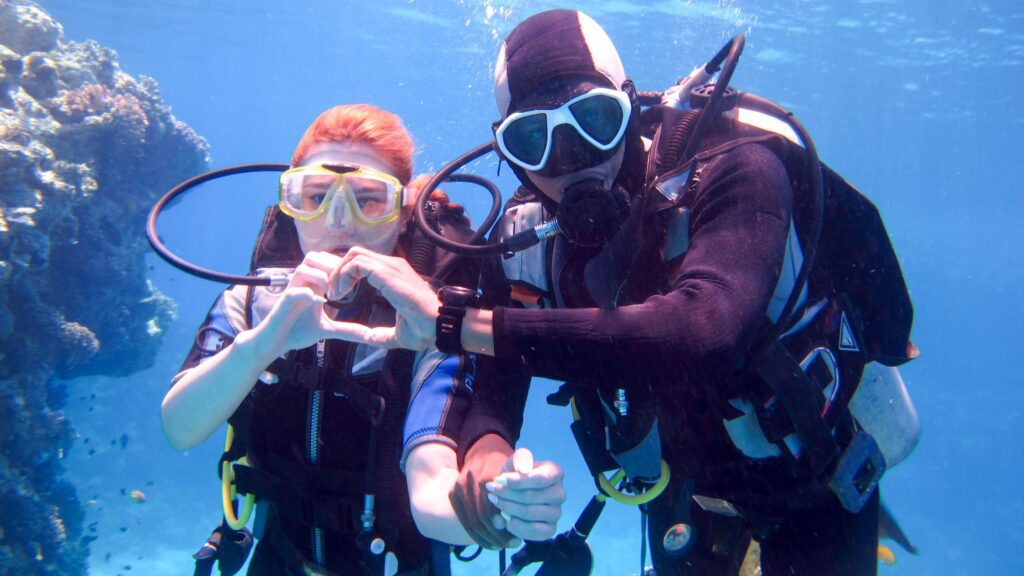
Here’s the thing: Depth is like spicy food — a little is fun, too much gets uncomfortable fast.
The deeper you go, the more pressure your body experiences, and that’s when certain risks increase:
- Below 60 feet (18 meters): You start to use more air per minute, and errors (like overexertion or improper buoyancy) have more impact.
- Around 100 feet (30 meters): You can experience nitrogen narcosis, a loopy, drunk-like state caused by the effects of nitrogen under pressure.
- Beyond 130 feet (40 meters): You enter technical diving territory, which requires specialized training, extra gas mixes, and serious planning.
So when does scuba diving become dangerous due to depth? Typically, below 100 feet, risk increases significantly unless you’re properly trained.
That said, most recreational dives happen in the 30–60 foot (9–18 meter) range, which is considered safe and manageable for anyone with basic certification.
Is Scuba Diving Dangerous at 30 Feet?
No. In fact, 30 feet (around 9 meters) is one of the safest depth zones to scuba dive.
At 30 feet:
- You have longer bottom time — your air lasts much longer than at deeper depths.
- The risk of decompression sickness is very low, as long as you ascend properly.
- Nitrogen narcosis isn’t a concern — it doesn’t kick in until deeper depths.
- Most beginner training dives happen here — it’s considered a “comfort zone.”
But even at 30 feet, there are a few things to keep in mind:
- You still need to equalize your ears to avoid pressure discomfort.
- Panic or anxiety can still happen — and it’s just as risky at shallow depths if you react poorly.
- Boat traffic is still a hazard if you don’t use a surface marker buoy when ascending.
So, while scuba diving at 30 feet isn’t inherently dangerous, it still requires attention and care. Think of it like riding a bike — it’s safe when you know what you’re doing, but not if you’re distracted and pedaling with your eyes closed.
Is Scuba Diving Safe from Sharks?
Sharks. The poster children of irrational ocean fear. Movies like Jaws have done a real number on our trust in these toothy fish. So, let’s cut through the drama.
Is scuba diving safe from sharks? Absolutely — statistically, yes.
Here’s why:
- According to the International Shark Attack File, there are fewer than 10 fatal shark attacks globally each year.
- The odds of being attacked by a shark while scuba diving are around 1 in 11.5 million.
- Scuba divers aren’t attractive to sharks. They’re loud, bubbly, and unfamiliar. Sharks prefer stealthy, splashy prey near the surface (like distressed swimmers or fish).
In fact, most divers want to see sharks — they’re majestic, curious, and usually swim right by without interest. And when a diver has been bitten, it’s usually due to provoking, feeding, or cornering the animal, not some random attack.
How to stay safe:
- Don’t wear shiny jewelry (it mimics fish scales).
- Avoid spear fishing — that does attract predators.
- Dive with a guide in shark-rich areas. They know the behavior patterns.
So yes, scuba diving is safe from sharks as long as you’re not out there playing “bait-ball hide-and-seek” with raw tuna.
Can You Scuba Dive If You’re Not a Strong Swimmer?
Here’s where it gets nuanced. You don’t need to be an Olympic swimmer, but you should be comfortable in water.
For certification (e.g., PADI), you’ll need to:
- Swim 200 meters (any stroke, no time limit).
- Float for 10 minutes.
You don’t need perfect technique but if water freaks you out, you’re better off building comfort first. Scuba diving is about controlled breathing and calm movement, not speed.
Can You Scuba Dive With Medical Conditions?
This is a big source of anxiety.
Conditions that can complicate diving:
- Asthma
- Heart disease
- Diabetes
- Ear/sinus issues
- Claustrophobia or anxiety disorders
BUT having these conditions doesn’t automatically disqualify you.
You’ll just need:
- A medical screening
- Clearance from your doctor (and possibly a dive specialist)
- Maybe modified training or extra precautions
Never lie on your medical form. It’s not paperwork: it’s your life. A hidden condition could turn a routine dive into a medical emergency.
What If Something Goes Wrong Underwater?
That’s a real nightmare scenario.
Let’s walk through the common fears:
- What if I run out of air?
- What if my mask floods?
- What if I lose my buddy?
Here’s what training and gear provide:
- A backup air source (octopus) — your buddy has one, too.
- Emergency ascent procedures — practiced in training.
- Mask clearing techniques — you’ll learn to do this calmly underwater.
- Buddy systems and pre-dive checks — so you’re never alone or unprepared.
The key is: Practice breeds calm. When you train for these situations, your body and brain don’t panic, they act.
What Are the Most Common Causes of Scuba Diving Accidents?
Scuba diving is dangerous primarily when people become complacent. Here are top triggers for accidents:
1. Skipping Pre-Dive Checks
Missing a malfunction or improperly fitted gear.
2. Diving Beyond Certification
Attempting deep dives or wreck dives without proper training.
3. Poor Buoyancy Control
Too much ascending and descending causes fatigue, confusion, or barotrauma.
4. Running Out of Air
Not monitoring your tank regularly = big mistake.
5. Ignoring the Weather or Water Conditions
Strong currents and bad visibility increase stress and risk.
All of these are preventable. Scuba accidents don’t “just happen.” They’re usually built on a stack of ignored warnings.
What Training Makes Scuba Diving Safe?
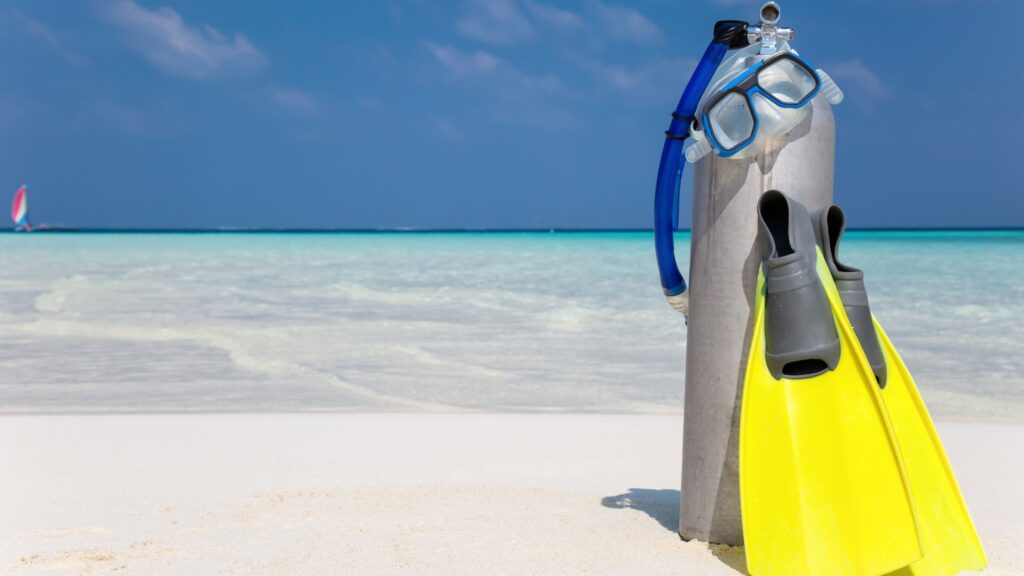
Let’s talk solutions.
You get certified through schools like:
- PADI (Professional Association of Diving Instructors)
- NAUI (National Association of Underwater Instructors)
- SSI (Scuba Schools International)
Training involves:
- Classroom (or online) learning on physics, physiology, and procedures
- Confined water (pool) skills
- Open water dives (4+)
Instructors drill you on:
- Mask clearing
- Emergency ascents
- Buddy breathing
- Equipment uses
This training drastically reduces risk. Scuba diving is dangerous without training but extremely safe with it.
Where Should First-Time Divers Go?
If you’re still wondering “Is scuba diving dangerous?” — consider choosing beginner-friendly locations.
Look for:
- Calm, warm waters
- Excellent visibility
- Shallow reefs (no more than 12–18m)
Examples:
- Cozumel, Mexico
- Bonaire, Caribbean
- Great Barrier Reef (shallow sites), Australia
- Florida
- Thailand (Koh Tao)
- Oahu
Dive shops in these areas are used to working with beginners — they prioritize safety and comfort.
Is Scuba Diving Safer Than We Think?
Let’s zoom out. When people ask, “is scuba diving dangerous,” they’re often reacting to a fear of the unknown, not the actual data.
Let’s compare:
| Activity | Deaths per 100,000 participants |
| Driving | ~13 |
| Skydiving | ~0.99 |
| Scuba Diving | ~0.5 |
Driving to the dive site is more dangerous than diving.
The problem is perception. The ocean seems vast and scary. But with gear, training, and guidance, it becomes manageable — even magical.
And if you’re wondering, what does scuba diving stand for, it’s “Self-Contained Underwater Breathing Apparatus.” That acronym represents your literal lifeline and it works exceptionally well.
The Bottom Line on Is Scuba Diving Dangerous?
Is scuba diving dangerous? Yes, but only when you ignore training, safety, or common sense.
When approached with respect, knowledge, and preparation, scuba diving is one of the safest adventure sports out there.
So, if you’re feeling anxious but intrigued, that’s okay. But let it push you to get trained, ask questions, and dive smart not run away from an incredible life experience.
